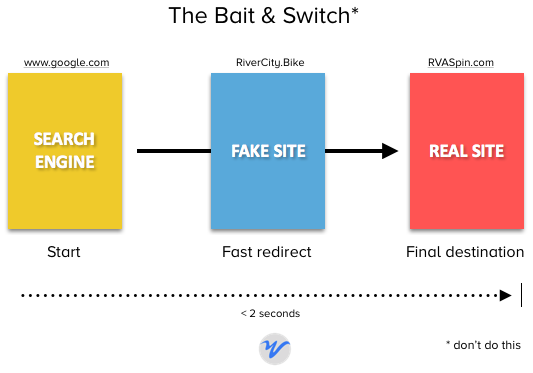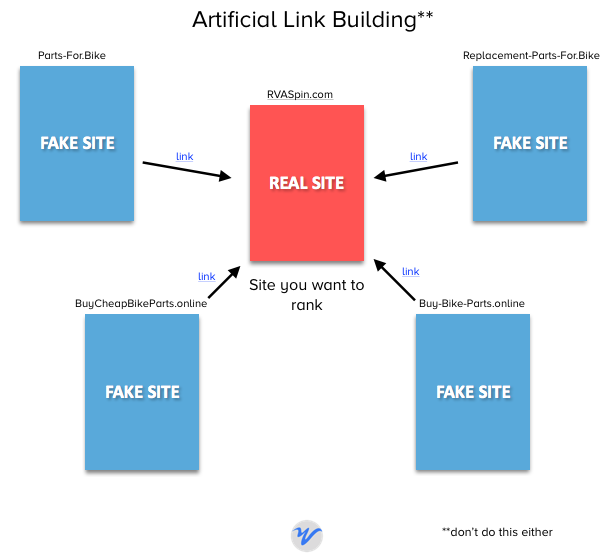For every business, a great online presence begins with a great website. It’s the one place online you completely own and control. Therefore, it’s a pillar to being successful online.
A company’s website address, or its domain name, is one of the few tangible assets a business can possess online. Proceeding the domain name is the domain extension, or everything after the “dot” (e.g. .com, .org, and .net).

The limited supply of domain extensions, specifically the “.coms,” has increased their value to the marketplace. To offset the scarcity, thousands of new domain extensions have recently become available. This includes, but is not limited to, .store, .news, .design and so on. Companies can even request and purchase their own branded top level domain (e.g. www.hire.webstrategiesinc).
As these new domain extensions become available, it brings up many strategic and ethical questions for marketing online. For example, should you buy every variation of your brand name, should you buy your competitors’ names, and can this be used to boost your site’s visibility in the search engines?
Determining the necessary amount of brand protection is not the purpose of this post. It’s ultimately up to each company how thorough and protected they want to be. Instead, this post is focused on how domain names can be mis-used to drive more visitors to your site, and why you should never consider them as viable tactics.
The Bait & Switch
Scenario 1: You buy a website address that looks like your competitor, but redirects to your site.
In this example, you are attempting to intercept your competitor’s branded traffic. It’s the classic bait and switch. Let’s say a local bike shop with the website “SpinRVA.com” wants to grab some local market share. Their biggest local competitor is RiverCityBike.com. Using the new “.bike” domain extension, they purchase RiverCity.Bike. Their goal is to rank above their competitor when people search “river city bike”. Once someone clicks RiverCity.Bike, they automatically get redirected to SpinRVA.com.

Will it work? Absolutely not. Trademark issues aside, there are two glaring issues with this strategy. First, ranking a domain name that doesn’t resolve to a full dedicated website is very difficult, if not impossible (there are a few exceptions to this; none of which we'll explore in this post). Websites rank due to their content and the other websites that link to them. A phantom domain name like this has neither. Therefore, Google and Bing have no reason to think it’s legitimate and worthy of ranking. Secondly, this tactic will only confuse and frustrate a potential customer. This is the worst kind of first impression, and they’ll just end up leaving your site.
Artificial Link Building
Scenario 2: You buy a website domain with your targeted keywords, then link them to your site.
In this example, you are basically buying links to your website. Google and Bing treat links to your website as indications of authority. Getting someone to naturally link to your site can take time, so expediting the process is desirable.
To bolster it’s ecommerce business, SpinRVA.com buys “parts-for.bike” and “BuyCheapBikeParts.online”. SpinRVA then sets up a basic website on each domain and creates links pointing back to SpinRVA.com. This is done a thousand times over to maximize its impact.

Will it work? Not anymore. This strategy is incredibly transparent, so Google and Bing will quickly swat it down. Even if the major search engines couldn’t detect your intentions, the links themselves would carry very little weight since these fake sites have no authority themselves.
Transparency
The most glaring problem with both methods is that they are very easy for search engines to detect. Google, for example, is an accredited registrar. This provides Google access to domain ownership information, so they know who owns what and what they're doing with it. Secondly, search engines like Google and Bing are only as good as their search results. As such, they dedicate some of their most brilliant minds to finding and identifying deceptive practices. If the search engines think you are trying to get more real estate than you are fairly entitled to, which in turn creates a negative experience for their user, they will take action.
Money better spent elsewhere
If you want more rankings and more traffic your effort, this time and money can be better spent doing things like:
- Optimizing your website for its targeted keywords
- Making your website fast and mobile-friendly
- Writing valuable content that can earn real links back to your site
Final Takeaway
You (and your SEO company) are not smarter than Google. If you are crafty and lucky enough to discover a loophole in a search engine algorithm, any success you achieve will be short lived. Google and Bing are constantly pushing new updates to compensate for deceptive practices. This will lead to devaluation and possibly penalization. I recommend buying domain names and extensions only if they have brand value, then investing your SEO budget into your website and its content.





Agree, disagree, or just have something to add?
Leave a comment below.